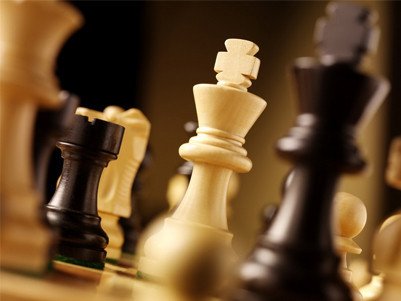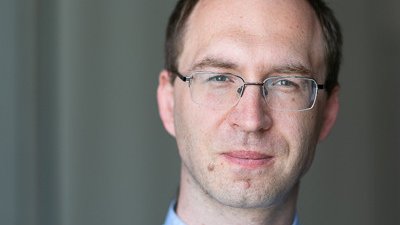Official:
Jean-Jacques Rousseau. June 28, 1712 – July 2, 1778. French philosopher, writer and thinker.
Life and Work:
1. Pushkin in Eugene Onegin called Rousseau a defender of freedom and rights. He was right: the principles formulated by the “citizen of Geneva” are the essence of the Constitution of the United States, Constitution of France and constitutions of other democratic nations. Many democratic institutions arose under the influence of Rousseau's ideas, for example, a referendum, or direct democracy, which is used in his native Switzerland to this day.
2. The amateur music historian, author of operas and botanist who had a chance to serve as a footman, house secretary and tutor became famous not for his numerous occupations and hobbies but for his books and philosophical works the main of which are Julie, or The New Heloise, Emile, or On Education, and The Social Contract. Jean-Jacques Rousseau described his social and political ideals in these books.
3. Jean-Jacques Rousseau is called a French philosopher, but it is not entirely true. He was born in Geneva in the family of a watchmaker and dance teacher. Rousseau did not know his mother, as she died in childbirth.
4. The boy had been demonstrating philosophical inclinations and courageous spirit from childhood. He used to read ancient philosophers with his father, and, following the example of the Roman hero Scovola, he burned his hand over the flame.
5. Young Jean-Jacques was sent to a boarding school and then for schooling – first to a notary, and then to an engraver. During his work, he managed to read, which his teachers did not like at all. In his work The Confessions, Rousseau wrote that his mentors’ mistreatment forced him to lie and steal.
6. At the age of sixteen, Jean-Jacques Rousseau decided to leave Geneva that was harsh to him. He was converted to Catholicism in a monastery in Turin.
7. For thirteen years, he was searching for himself and working in Europe. He was serving as a lackey in Turin, apprenticed to an organist and studying at the seminary, got a job as a tutor in Lyon but appeared to be unsuitable for this work. He was expelled from his post as a home secretary to the French envoy in Venice without paying his salary, but he managed to receive the money by the court.
8. He reached Paris in 1741. He used to earn a living by rewriting music sheets and giving private lessons. Then he made a close acquaintance with the enlighteners: he befriended Diderot, Holbach, D'Alembert and became the head of the music department in the famous Encyclopedia. It is not surprising: Rousseau was writing operas, staging home performances and even proposed a new system of numbered musical notation that was rejected by the French Academy of Sciences.
9. While in Paris, Rousseau met a hotel maid – an uncouth, uneducated and not too smart person. More than 20 years later, he married the mother of his five children. The educator’s all children were brought up in an orphanage – Rousseau justified this by the fact that he could neither give them a decent upbringing nor do mental work in such noisy settings.
10. Rousseau became famous by pure chance. He had read about an essay competition sponsored by the Académie de Dijon on the theme of whether the development of the arts and sciences had been morally beneficial. The philosopher wrote the tractate Discourse on the Sciences and Arts where he developed a paradoxical idea that enlightenment is harmful, and culture itself is a lie and a crime, and the fruits of progress are always moral damage and military weakness. The tractate was awarded a prize, and the thinker’s career took off.
11. Rousseau also achieved success in music: his operetta The Village Soothsayer was staged on the court stage, and Louis XV himself used to hum his arias.
12. In his book The Social Contract, Rousseau called the executive power the brain of the state, and the legislative power – its heart. Rousseau tried to explain the causes of social inequality for the first time in political philosophy and described the state as the result of a social contract.
13. In his pedagogical treatise Emile, or On Education, Rousseau trashed the existing education system: the philosopher claimed that it ignored children’s inner world and neglected their natural needs.
14. Jean-Jacques Rousseau considered nature and work to be the two main teachers for children. Therefore, he believed that children’s first book had to be Daniel Defoe's Robinson Crusoe.
15. In Emile, Rousseau outlined the idea of children's clothing that was close to modern views. Indeed, children were perceived as small adults and dressed accordingly until the 18th century.
16. Emile was sentenced to burning for religious freethinking and indecency, and the author was ordered to be arrested. Rousseau was warned and fled to Switzerland. Notably, the philosopher met bailiffs sent after him on the way, and they and Rousseau exchanged bows.
17. Rousseau did not find peace in Switzerland – not only Emile but also The Social Contract were burnt there. The philosopher found refuge in the County of Neuchatel that was under the Prussian king’s rule at that time. However, after a quarrel with Voltaire who anonymously accused Rousseau of overthrowing the Constitution of Geneva and Christianity, the philosopher was forced to flee from Neuchatel.
18. Jean-Jacques Rousseau lived in England for two years, where he was invited by his colleague David Hume. But a developing mental illness made him believe that he was being held in the country by force, and Rousseau returned to France.
19. Long wanderings materialized into one of his works: Confessions were created. The book was conceived as repentance but turned into passionate self-defense. Literary critics argue that the autobiographical novel shocks by the frankness of psychological introspection.
20. Rousseau expressed himself very aphoristically outside of his philosophical works as well: in his opinion, only three things were required for happiness: a good bank account, a good cook, and a good stomach.
21. Rousseau spent the rest of his days at Château d'Ermenonville, the estate belonging to his friend, Marquis Rene Louis de Girardin. He found his resting place there – on an island in the park. 16 years later, in 1794, Rousseau's remains were reburied in the Pantheon.
22. Famous sculptor Jean-Antoine Houdon made the death mask of Rousseau. Later, he used the mask to create the philosopher’s famous portrait and bust.




















